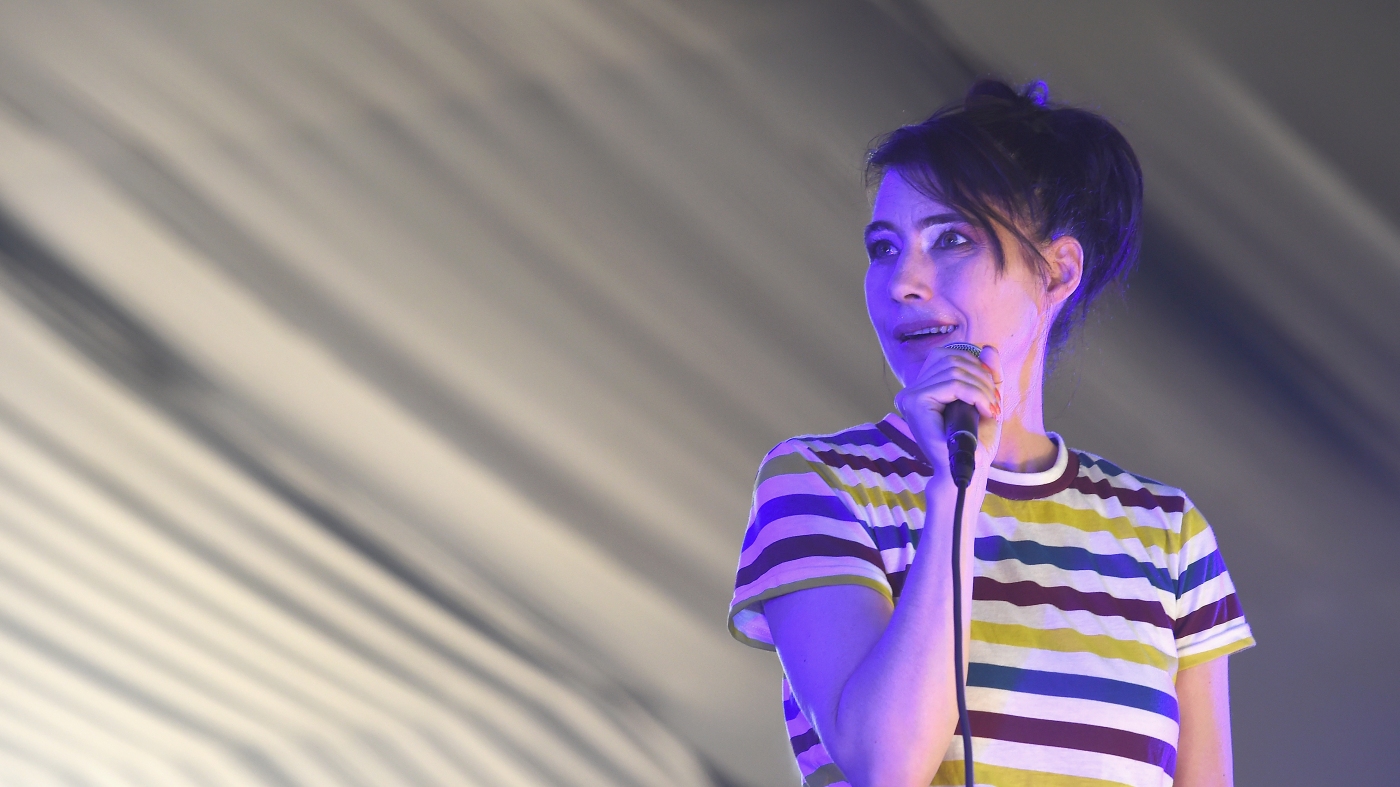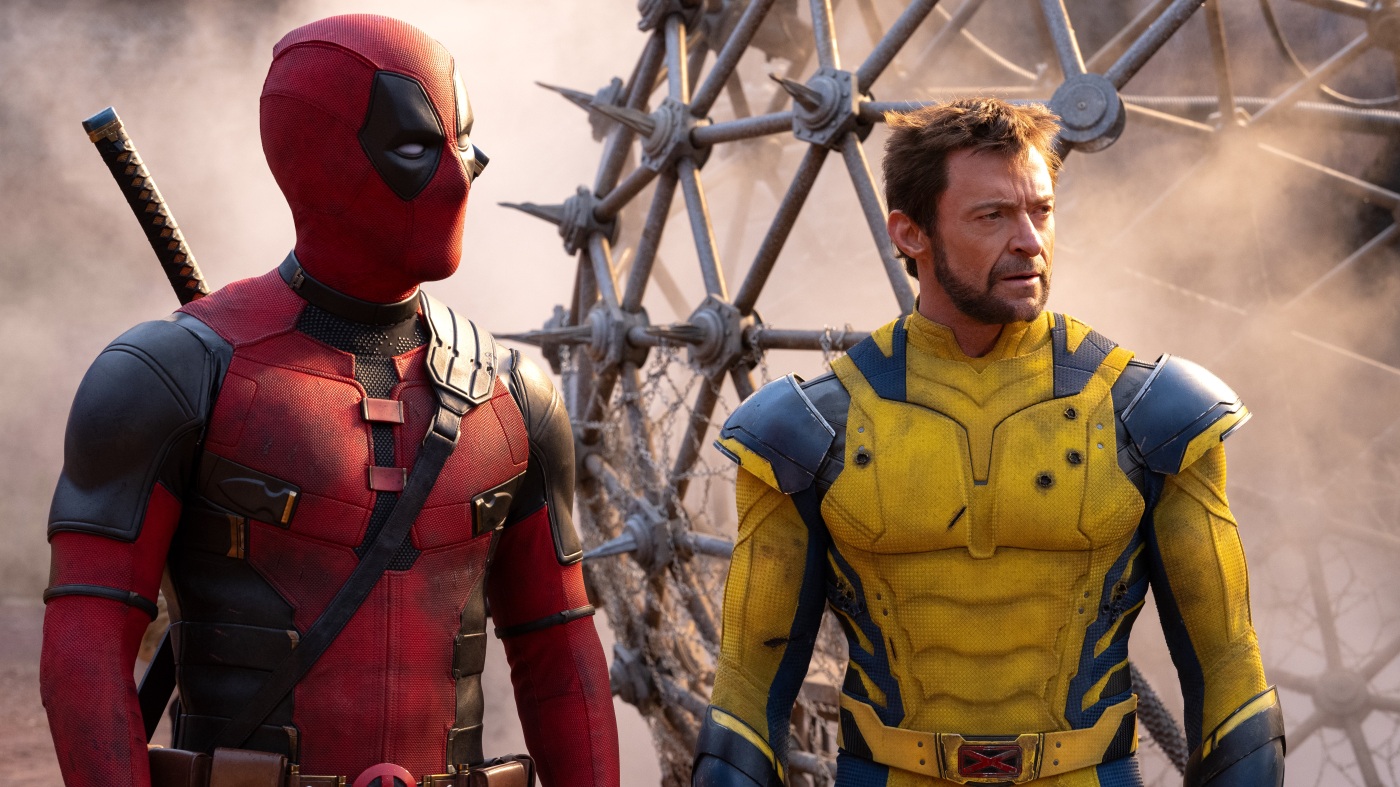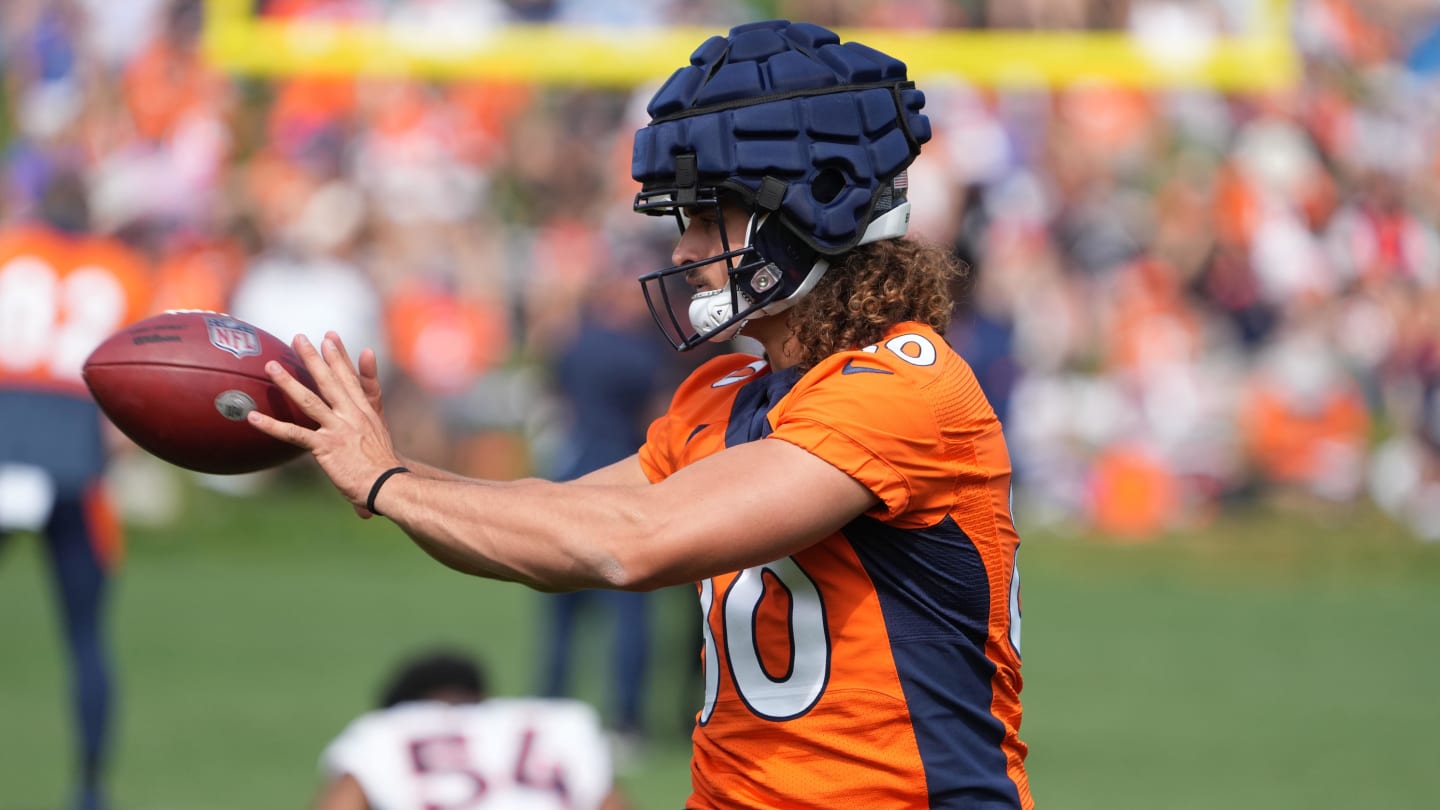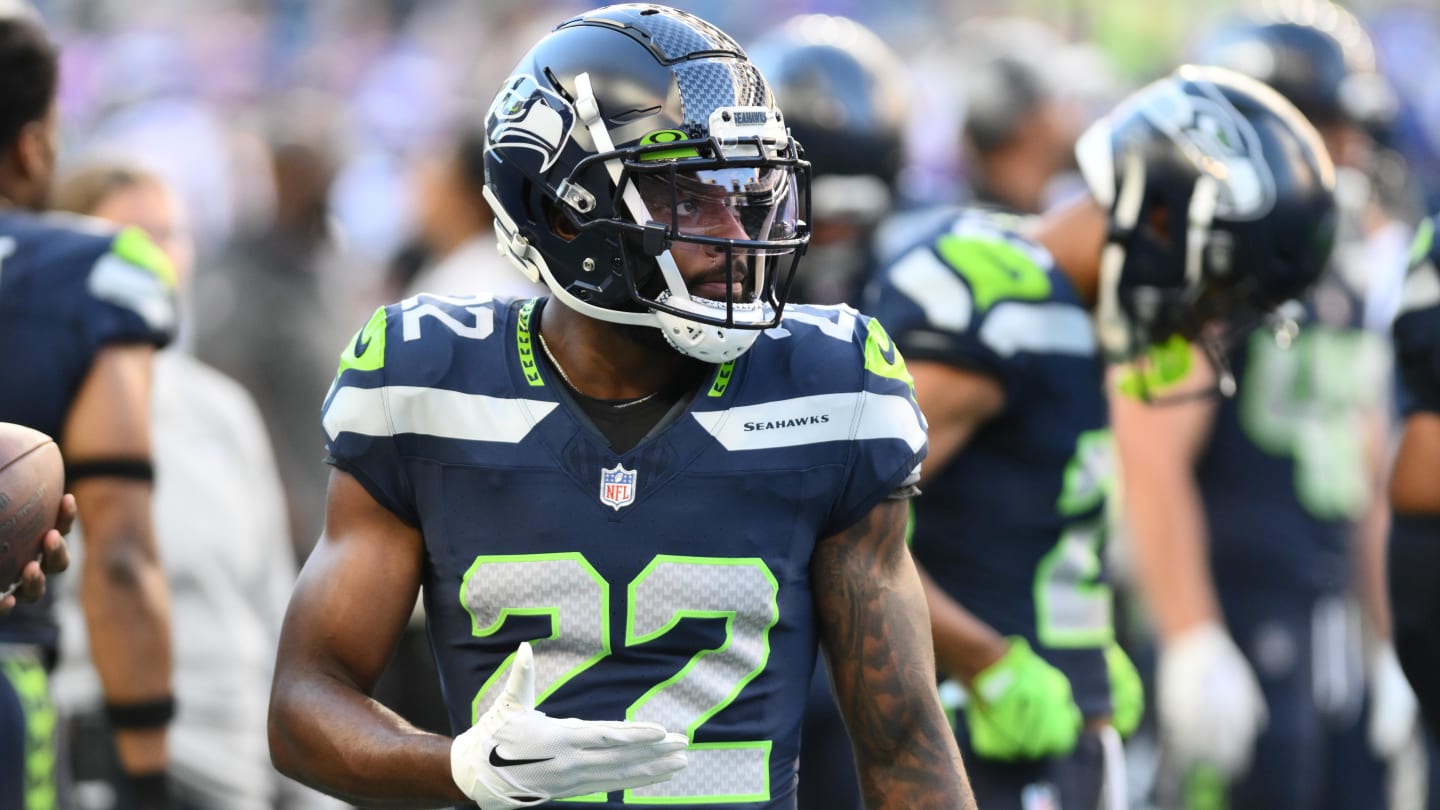Lifestyle
Comedian Richard Lewis, who recently starred on 'Curb Your Enthusiasm,' dies at 76

Comedian Richard Lewis attends an NBA basketball game in Los Angeles on Dec. 25, 2012. Lewis, an acclaimed comedian known for exploring his neuroses in frantic, stream-of-consciousness diatribes, has died at age 76.
Alex Gallardo/AP
hide caption
toggle caption
Alex Gallardo/AP

Comedian Richard Lewis attends an NBA basketball game in Los Angeles on Dec. 25, 2012. Lewis, an acclaimed comedian known for exploring his neuroses in frantic, stream-of-consciousness diatribes, has died at age 76.
Alex Gallardo/AP
NEW YORK — Richard Lewis, an acclaimed comedian known for exploring his neuroses in frantic, stream-of-consciousness diatribes while dressed in all-black, leading to his nickname “The Prince of Pain,” has died. He was 76.
Lewis, who revealed he had been diagnosed with Parkinson’s disease in 2023, died at his home in Los Angeles on Tuesday night after suffering a heart attack, according to his publicist Jeff Abraham.
A regular performer in clubs and on late-night TV for decades, Lewis also played Marty Gold, the romantic co-lead opposite Jamie Lee Curtis, in the ABC series “Anything But Love” and the reliably neurotic Prince John in “Mel Brooks’ Robin Hood: Men In Tights.” He re-introduced himself to a new generation opposite Larry David in HBO’s “Curb Your Enthusiasm,” kvetching regularly.
“I’m paranoid about everything in my life. Even at home. On my stationary bike, I have a rear-view mirror, which I’m not thrilled about,” he once joked onstage. To Jimmy Kimmel he said: “This morning, I tried to go to bed. I couldn’t sleep. I counted sheep but I only had six of them and they all had hip replacements.”
Comedy Central named Lewis one of the top 50 stand-up comedians of all time and he earned a berth in GQ magazine’s list of the “20th Century’s Most Influential Humorists.” He lent his humor for charity causes, including Comic Relief and Comedy Gives Back.

“Watching his stand-up is like sitting in on a very funny and often dark therapy session,” the Los Angeles Times said in 2014. The Philadelphia’s City Paper called him “the Jimi Hendrix of monologists.” Mel Brooks once said he “may just be the Franz Kafka of modern-day comedy.”
Following his graduation from The Ohio State University in 1969, the New York-born Lewis began a stand-up career, honing his craft on the circuit with other contemporaries also just starting out like Jay Leno, Freddie Prinze and Billy Crystal.
He recalled Rodney Dangerfield hiring him for $75 to fill in at his New York club, Dangerfield’s. “I had a lot of great friends early on who believed in me, and I met pretty iconic people who really helped me, told me to keep working on my material. And I never looked back,” he told The Gazette of Colorado Springs, Colorado, in 2010.

Unlike contemporary Robin Williams, Lewis allowed audiences into his world and melancholy, pouring his torment and pain onto the stage. Fans favorably compared him to the ground-breaking comedian Lenny Bruce.
“I take great pains not to be mean-spirited,” Lewis told The Palm Beach Post in 2007. “I don’t like to take real handicaps that people have to overcome with no hope in sight. I steer clear of that. That’s not funny to me. Tragedy is funny to other humorists, but it’s not to me, unless you can make a point that’s helpful.”
Singer Billy Joel has said he was referring to Lewis when he sang in “My Life” of an old friend who “bought a ticket to the West Coast/Now he gives them a stand-up routine in L.A.”
In 1989 at Carnegie Hall, he appeared with six feet of yellow legal sheets filled with material and taped together for a 2½-hour set that led to two standing ovations. The night was “the highlight of my career,” he told The Washington Post in 2020.
Lewis told GQ his signature look came incidentally, saying his obsession with dressing in black came from watching the television Western “Have Gun – Will Travel,” with a cowboy in all-black, when he was a kid. He also popularized the term “from hell” — as in “the date from hell” or “the job from hell.”
“That just came out of my brain one day and I kept repeating it a lot for some reason. Same thing with the black clothes. I just felt really comfortable from the early ’80s on and I never wore anything else. I never looked back.”
After getting sober from drugs and alcohol in 1994, Lewis put out his 2008 memoir, “The Other Great Depression” — a collection of fearless, essay style riffs on his life — and “Reflections from Hell.”
Lewis was the youngest of three siblings — his brother was older than him by six years, and his sister by nine. His father died young and his mother had emotional problems. “She didn’t get me at all. I owe my career to my mother. I should have given her my agent’s commission,” he told The Washington Post in 2020.
“Looking back on it now, as a full-blown, middle-aged, functioning anxiety collector, I can admit without cringing that my parents had their fair share of tremendous qualities, yet, being human much of the day, had more than just a handful of flaws as well,” he wrote in his memoir.
Lewis quickly found a new family performing at New York’s Improv. “I was 23, and all sorts of people were coming in and out and watching me, like Steve Allen and Bette Midler. David Brenner certainly took me under his wing. To drive home to my little dump in New Jersey often knowing that Steve Allen said, ‘You got it,’ that validation kept me going in a big, big way.”
He had a cameo in “Leaving Las Vegas,” which led to his first major dramatic role as Jimmy Epstein, an addict fighting for his life in the indie film, “Drunks.” He played Don Rickles’ son on one season of “Daddy Dearest” and a rabbi on “7th Heaven.”
Lewis’s recurring role on “Curb Your Enthusiasm” can be credited directly to his friendship with fellow comedian, producer and series star Larry David. Both native Brooklynites — born in the same Brooklyn hospital — they first met and became friends as rivals while attending the same summer camp at age 13. He was cast from the beginning, bickering with David on unpaid bills and common courtesies.
He is survived by his wife, Joyce Lapinsky.

Lifestyle
'Wait Wait' for July 27, 2024: With Not My Job guest Kathleen Hanna

Kathleen Hanna of The Julie Ruin performs onstage at the 2016 Panorama NYC Festival – Day 2 at Randall’s Island on July 23, 2016 in New York City. (Photo by Nicholas Hunt/Getty Images)
Nicholas Hunt/Getty Images/Getty Images North America
hide caption
toggle caption
Nicholas Hunt/Getty Images/Getty Images North America
This week’s show was recorded in Chicago with host Peter Sagal, judge and scorekeeper Bill Kurtis, Not My Job guest Kathleen Hanna and panelists Meredith Scardino, Peter Grosz, and Mo Rocca Click the audio link above to hear the whole show.
Who’s Bill This Time
Momala Takes Over; Assigned Seats Are Back; And The Heat Is On
The Olympic Torch Reporch
Our Summer Olympics Preview
Bluff The Listener
Our panelists tell three stories about someone committing an office faux pas, only one of which is true.
Not My Job: We quiz Bikini Kill’s Kathleen Hanna on Hanna-Barbera
Punk icon Kathleen Hanna plays our game called, “Kathleen Hanna Meet Hannah-Barbera.” Three questions about the animation studio.
Panel Questions
Hide Your Receipts; VR Meets ER; Avocado Apologies
Limericks
Bill Kurtis reads three news-related limericks: Situation Room Cocktails; Burrito Bird; Hopped Up Sharks
Lightning Fill In The Blank
All the news we couldn’t fit anywhere else
Predictions
Our panelists predict what will be the big story out of the Paris Olympic Games
Lifestyle
L.A. Affairs: At 77, I had a crush on my best friend’s widower. Did he feel the same way?

At 77, I had given up. After two failed marriages and years of unsuccessful dating, I accepted what seemed to be my fate: single for almost 40 years and single for however many remained. You don’t get it all, I told myself. I was grateful for family, friends and work. Life settled into what felt like order.
Until Ty.
As the husband of my best friend, he was no stranger, but he was usually peripheral. Then 10 years ago, my friend got lung cancer. I watched during visits, stunned at how nurturing Ty could be, taking care of her even though they had separated years before at her request.
After she died, Ty and I stayed in touch sporadically: a surprise sharing of his second granddaughter a year after we scattered my friend’s ashes, an invitation to the launch of my book a year later. Ty attended, hovering in the back, emerging after everyone left to attentively help load my car.
Two more years passed. During quiet moments, I remembered his sweetness. I also remembered his handsome face and long, tall body. Confused about what I wanted, I texted Ty, who’s an architect, under the guise of purchasing a tree for my backyard.
We spent an afternoon at the nursery, laughing, comparing options and agreeing on a final selection. When the tree arrived, I emailed a photo. He emailed a thank you.
Another three years passed, broken only by news of his third granddaughter and my memories of how good it felt to be with him. Alert to his attentiveness, but unsettled by both his remove and my growing interest, I risked reaching out again, this time about remodeling my garage.
Ty spent several hours at my house making measurements, checking the foundation and sharing pictures of his home in Topanga. His sketches for the garage arrived two weeks later via email.
I was grateful for his help but unsure over what sort of friendship we were developing, at least from his point of view. I, however, was clear. I wanted him to wrap his long arms around me, tell me sweet things and make me his.
Instead, I sent a gift card to a Topanga restaurant to thank him for his drawings.
“Maybe we should spend it together,” he texted.
We dined in the dusk of late summer. Our talk was easy. Discomfort lay in the unspoken. Anxious for clarity, I repeatedly let my hand linger near the candle flickering in the middle of our table. It remained untouched.
And that was as far as I was willing to go. I refused to be any more forward, having already compromised myself beyond my comfort level with what seemed, at least to me, embarrassingly transparent efforts to indicate my interest. Not making the first move was very important. If a man could not reach out, if he didn’t have the self-confidence to take the first step, he would not, I adamantly felt, be a good partner for me.
Two weeks later, Ty did email, suggesting an early evening hike in Tuna Canyon in Malibu. The setting was perfect. Sun sparkled off the ocean. A gentle breeze blew. We climbed uphill for sweeping coastal vistas and circled down to the shade of live oaks, touching only when he took my hand to steady me where the path was slippery. At the end of the trail, overlooking the juncture between the mountains and the sea, we stood opposite each other and talked animatedly for almost an hour, both of us reluctant to part.
Our conversation was engaging, but my inner dialogue was louder. When, I kept thinking, is this man going to suggest we continue the evening over dinner? We didn’t have to go out. We could eat at his house. It was 7 p.m., for God’s sake. Passing hikers even stopped to remark on our matching white hair and how well they thought we looked together. It was like a movie scene where the audience is yelling, “Kiss her, kiss her,” rooting for what they know is going to happen while the tension becomes almost unbearable. But bear it I did.
Each of us ate alone.
A few weeks later, at his suggestion, we were back at Tuna Canyon. This time Ty did invite me to end the evening at his house. Sitting close on his couch, but not too close, we drifted toward each other in the darkening room. His shoulder brushed mine reaching for his cup of coffee. My hip pressed his as I leaned in for my tea. Slowly, sharing wishes and hopes for our remaining years, we became shadows in the light of the moon. And in that darkness, in that illuminated space, he reached out.
This reticent man, this man who was so slow to move toward me, this sensitive man who hid himself behind layers so opaque I was unsure of his interest, released all that he had inside him.
“I wanted you,” Ty repeated again and again. “I was afraid of ruining things. You were her best friend. I didn’t want to lose your friendship.”
Our pent-up tension exploded.
Stunned and thrilled, I leaned into the space he opened.
Three years later, it is a space we continue to share: a place where neither of us has given up, a place where he wraps me in his long arms, a place we hold carefully against our diminishing days.
The author is the owner of a preschool in Venice as well as a psychotherapist, photographer and writer. Her first book, “Naked in the Woods: My Unexpected Years in a Hippie Commune,” was published in 2015. Her newest manuscript, “Bargains: A Coming of Aging Memoir Told in Tales,” is seeking a publisher. She lives in Mar Vista and can be found at margaretgrundstein.com, Instagram @margwla, Medium @margaretgrundstein and Substack @mgrundstein.
L.A. Affairs chronicles the search for romantic love in all its glorious expressions in the L.A. area, and we want to hear your true story. We pay $400 for a published essay. Email LAAffairs@latimes.com. You can find submission guidelines here. You can find past columns here.
Lifestyle
'Deadpool & Wolverine' is a self-cannibalizing slog

Ryan Reynolds stars as Deadpool and Hugh Jackman as Wolverine in an odd-couple action hero pairing.
Jay Maidment/20th Century Studios
hide caption
toggle caption
Jay Maidment/20th Century Studios
When Fox Studios released the first Deadpool movie back in 2016, it played like an irreverently funny antidote to our collective comic-book-movie fatigue. Wade Wilson, or Deadpool, was a foul-mouthed mercenary who obliterated his enemies and the fourth wall with the same gonzo energy.
Again and again, Deadpool turned to the camera and mocked the clichés of the superhero movie with such deadpan wit, you almost forgot you were watching a superhero movie. And Ryan Reynolds, Hollywood’s snarkiest leading man, might have been engineered in a lab to play this vulgar vigilante. I liked the movie well enough, though one was plenty; by the time Deadpool 2 rolled around in 2018, all that self-aware humor had started to seem awfully self-satisfied.
Now we have a third movie, Deadpool & Wolverine, which came about through some recent movie-industry machinations. When Disney bought Fox a few years ago, Deadpool, along with other mutant characters from the X-Men series, officially joined the franchise juggernaut known as the Marvel Cinematic Universe.
That puts the new movie in an almost interesting bind. It tries to poke fun at its tortured corporate parentage; one of the first things Deadpool says is “Marvel’s so stupid.” But now the movie also has to fit into the narrative parameters of the MCU. It tries to have it both ways: brand extension disguised as a satire of brand extension.

It’s also an odd-couple comedy, pairing Deadpool with the most famous of the X-Men: Logan, or Wolverine, the mutant with the unbreakable bones and the retractable metal claws, played as ever by a bulked-up Hugh Jackman.
The combo makes sense, and not just because both characters are Canadian. In earlier movies, Deadpool often made Wolverine the off-screen butt of his jokes. Both Deadpool and Wolverine are essentially immortal, their bodies capable of self-regenerating after being wounded. Both are tormented by past failures and are trying to redeem themselves. Onscreen, the two have a good, thorny chemistry, with Jackman’s brooding silences contrasting nicely with Reynolds’ mile-a-minute delivery.
I could tell you more about the story, but only at the risk of incurring the wrath of studio publicists who have asked critics not to discuss the plot or the movie’s many, many cameos. Let’s just say that the director Shawn Levy and his army of screenwriters bring the two leads together through various rifts in the multiverse. Yes, the multiverse, that ever-elastic comic-book conceit, with numerous Deadpools and Wolverines from various alternate realities popping up along the way.

I suppose it’s safe to mention that Matthew Macfadyen, lately of Succession, plays some kind of sinister multiverse bureaucrat, while Emma Corrin, of The Crown, plays a nasty villain in exile. It’s all thin, derivative stuff, and the script’s various wink-wink nods to other shows and movies, from Back to the Future to Furiosa to The Great British Bake Off, don’t make it feel much fresher. And Levy, who previously directed Reynolds in the sci-fi comedies Free Guy and The Adam Project, doesn’t have much feel for the splattery violence that is a staple of the Deadpool movies. There’s more tedium than excitement in the characters’ bone-crunching, crotch-stabbing killing sprees, complete with corn-syrupy geysers of blood.

For all its carnage, its strenuous meta-humor and an R-rated sensibility that tests the generally PG-13 confines of the MCU, Deadpool & Wolverine does strive for sincerity at times. Some of its cameos and plot turns are clearly designed to pay tribute to Fox’s X-Men films from the early 2000s.
As a longtime X-Men fan myself, I’m not entirely immune to the charms of this approach; there’s one casting choice, in particular, that made me smile, almost in spite of myself. It’s not enough to make the movie feel like less of a self-cannibalizing slog, though I suspect that many in the audience, who live for this kind of glib fan service, won’t mind. Say what you will about Marvel — I certainly have — but it isn’t nearly as stupid as Deadpool says it is.

-

 World1 week ago
World1 week agoOne dead after car crashes into restaurant in Paris
-

 Midwest1 week ago
Midwest1 week agoMichigan rep posts video response to Stephen Colbert's joke about his RNC speech: 'Touché'
-

 News1 week ago
News1 week agoVideo: Young Republicans on Why Their Party Isn’t Reaching Gen Z (And What They Can Do About It)
-

 Movie Reviews1 week ago
Movie Reviews1 week agoMovie Review: A new generation drives into the storm in rousing ‘Twisters’
-

 News1 week ago
News1 week agoIn Milwaukee, Black Voters Struggle to Find a Home With Either Party
-

 Politics1 week ago
Politics1 week agoFox News Politics: The Call is Coming from Inside the House
-

 News1 week ago
News1 week agoVideo: J.D. Vance Accepts Vice-Presidential Nomination
-

 World1 week ago
World1 week agoTrump to take RNC stage for first speech since assassination attempt















